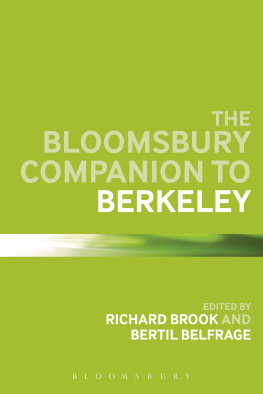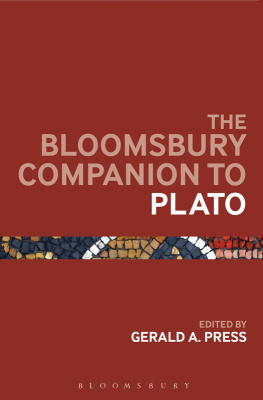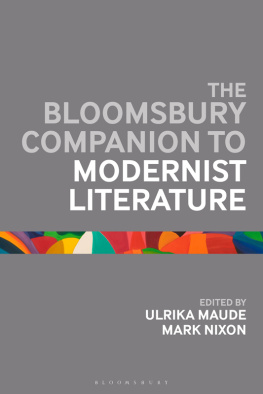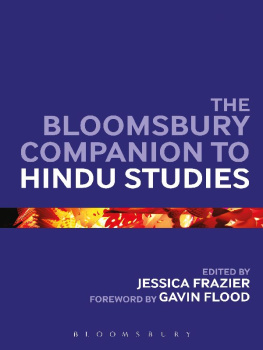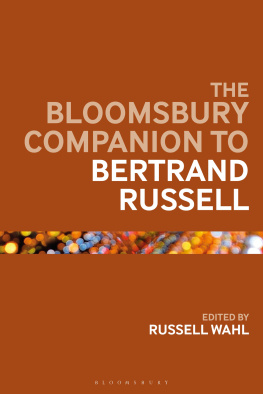Bertil Belfrage - The Bloomsbury Companion to Berkeley
Here you can read online Bertil Belfrage - The Bloomsbury Companion to Berkeley full text of the book (entire story) in english for free. Download pdf and epub, get meaning, cover and reviews about this ebook. year: 2017, publisher: Bloomsbury UK, genre: Science. Description of the work, (preface) as well as reviews are available. Best literature library LitArk.com created for fans of good reading and offers a wide selection of genres:
Romance novel
Science fiction
Adventure
Detective
Science
History
Home and family
Prose
Art
Politics
Computer
Non-fiction
Religion
Business
Children
Humor
Choose a favorite category and find really read worthwhile books. Enjoy immersion in the world of imagination, feel the emotions of the characters or learn something new for yourself, make an fascinating discovery.
- Book:The Bloomsbury Companion to Berkeley
- Author:
- Publisher:Bloomsbury UK
- Genre:
- Year:2017
- Rating:4 / 5
- Favourites:Add to favourites
- Your mark:
- 80
- 1
- 2
- 3
- 4
- 5
The Bloomsbury Companion to Berkeley: summary, description and annotation
We offer to read an annotation, description, summary or preface (depends on what the author of the book "The Bloomsbury Companion to Berkeley" wrote himself). If you haven't found the necessary information about the book — write in the comments, we will try to find it.
The Bloomsbury Companion to Berkeley — read online for free the complete book (whole text) full work
Below is the text of the book, divided by pages. System saving the place of the last page read, allows you to conveniently read the book "The Bloomsbury Companion to Berkeley" online for free, without having to search again every time where you left off. Put a bookmark, and you can go to the page where you finished reading at any time.
Font size:
Interval:
Bookmark:

Other volumes in the series of Bloomsbury Companions:
Aesthetics, edited by Anna Christina Ribeiro
Analytic Philosophy, edited by Barry Dainton and Howard Robinson
Continental Philosophy, edited by John Maoilearca and Beth Lord
Epistemology, edited by Andrew Cullison
Ethics, edited by Christian Miller
Existentialism, edited by Felicity Joseph, Jack Reynolds and Ashley Woodward
Hegel, edited by Allegra de Laurentiis and Jeffrey Edwards
Hume, edited by Alan Bailey and Dan OBrien
Hobbes, edited by S.A. Lloyd
Kant, edited by Gary Banham, Dennis Schulting and Nigel Hems
Leibniz, edited by Brandan C. Look
Locke, edited by S.-J. Savonius-Wroth, Paul Schuurman and Jonathan Walmsley
Marx, edited by Jeff Diamanti, Andrew Pendakis and Imre Szeman
Metaphysics, edited by Robert W. Barnard and Neil A. Manson
Philosophical Logic, edited by Leon Horston and Richard Pettigrew
Philosophy of Language, edited by Manuel Garcia-Carpintero and Max Kolbel
Philosophy of Mind, edited by James Garvey
Philosophy of Science, edited by Steven French and Juha Saatsi
Plato, edited by Gerald A. Press
Political Philosophy, edited by Andrew Fiala
Pragmatism, edited by Sami Pihlstrm
Socrates, edited by John Bussanich and Nicholas D. Smith
Spinoza, edited by Wiep van Bunge, Henri Krop,Piet Steenbakkers and Jeroen van de Ven

| Alc | Alciphron; or, the Minute Philosopher (1732) |
| Analyst | The Analyst; or, a Discourse Addressed to an Infidel Mathematician (1734) |
| DM | De Motu; sive, De Motus Principio & Natura, & de Causa Communicationis Motuum (1721) |
| NB | Two notebooks (A and B) published as Philosophical Commentaries. |
| P | A Treatise Concerning the Principles of Human Knowledge. Part I (1710) |
| PI | Published Introduction to the Principles. |
| MI | Manuscript Introduction to the Principles. |
| TV | An Essay towards a New Theory of Vision (1709) |
| TVV | The Theory of Vision Vindicated and Explained (1732) |
| 3D | Three Dialogues between Hylas and Philonous (1712) |
| Siris | Siris: A Chain of Philosophical Reflexions (1744) |
| Q | The Querist, Containing Several Queries, Proposed to the Consideration of the Public (17351737, 1750) |
| Works | The Works of George Berkeley, 9 Vols, A. A. Luce and T. E. Jessop (eds), London, Nelson (19481957). |
Timo Airaksinen is Professor of Moral Philosophy at the University of Helsinki, Finland.
Bertil Belfrage became Assistant Professor (universitetslektor) in Theoretical Philosophy at Lund University, Sweden in 1970, and Research Fellow in the History of Ideas and Sciences in 1993. He was Senior Editor of Berkeley Studies in 20052007, is editing a new scholarly edition of Berkeleys works and has published numerous papers on different aspects of Berkeleys philosophy.
Talia Bettcher is Professor and Department Chair of Philosophy, College of Arts and Letters, California State University, USA.
Seth Bordner is Assistant Professor Philosophy at the University of Alabama, USA.
Wolfgang Breidert was formerly professor of philosophy at the University of Karlsruhe. He has translated most of Berkeleys writings into German (198096). He is the author of George Berkeley: 16851753 (1989); Philosophen im Gedicht (2012); Philosophie in Gedichten (2013); and essays on history of mathematics, among others on Berkeley and mathematics.
Richard Brook is Professor Emeritus of Philosophy at Bloomsburg University, USA.
Laurence Carlin is Associate Professor of Philosophy and a member of the University Honors Faculty at University of Wisconsin-Oshkosh, USA.
Sbastien Charles is a Professor and Dean of Research at the University of Quebec in Trois-Rivires, Canada.
James Van Cleve is a Professor of Philosophy at the University of Southern California, USA.
Georges Dicker is Distinguished Professor of Philosophy at the College of Brockport, State University of New York, USA.
Keota Fields is a Professor of Philosophy at the University of Massachusetts, USA.
Richard Glauser is a Professor at the Institute of Philosophy, University of Neuchatel, Switzerland.
Adam Grzeliski is the Director of the Institute of Philosophy at Nicholas Copernicus University, Poland.
Marc Hight is Eliot Professor of Philosophy at Hampden-Sydney College, Australia.
Tom Jones is a Reader in English, University of St. Andrews, UK.
Patrick Kelly is Professor and Fellow Emeritus of History at Trinity College, Dublin, Ireland.
Nancy Kendrick is a Professor of Philosophy at Wheaton College, USA.
Charles McCracken is Professor Emeritus Philosophy at Michigan State University, USA.
Jeff McDonough is Professor of Philosophy at Harvard University, USA.
Kenneth Pearce is Ussher Assistant Professor in Berkeley Studies in the Department of Philosophy, Trinity College, Dublin, Ireland and Lilly Postdoctoral Fellow at Valparaiso University, USA.
Samuel Rickless is a Professor in the Philosophy Department of the University of California, San Diego, USA.
John Roberts is Associate Professor in the Department of Philosophy at Florida State University, USA.
Howard Robinson is a Professor in the Department of Philosophy at the Central European University, Budapest, Hungary.
Tom Stoneham is a Graduate Research Professor of Philosophy at the University of York, UK.
Bertil Belfrage and Richard Brook
George Berkeleys most famous works today are the Principles (1710) and the Three Dialogues (1713), known for his idealism and his challenging denial of matter. Ironically enough, these important works were either neglected or disregarded in Berkeleys lifetime. When rediscovered about a century after his death, they attracted a lot of interest from both realists and idealists. Towards the end of the nineteenth century, the established view was that Berkeley exclusively contributed to the field of metaphysics. The editors of Berkeleys Works (194857), A. A. Luce and T. E. Jessop, argued in their introductions that we could, or should, neglect some of those works in which he dealt with other than metaphysical issues. Thus we read in volume one of the Works that the Theory of Vision (1709) did not represent Berkeleys own views at any stage (1:147, 14950, 156), in volume three that Alciphron, or the Minute Philosopher (1732) has been left to students of philosophy quite wrongly, because he did not express his own view in this work (3:7, 13), in volume four that De Motu (1721) is a slight and disappointing work apart from the Principles the De Motu would be nonsense (4:34), et cetera. The result was that works for which Berkeley was famous in his lifetime are seldom, if ever, studied in the Anglophone world today.
Next pageFont size:
Interval:
Bookmark:
Similar books «The Bloomsbury Companion to Berkeley»
Look at similar books to The Bloomsbury Companion to Berkeley. We have selected literature similar in name and meaning in the hope of providing readers with more options to find new, interesting, not yet read works.
Discussion, reviews of the book The Bloomsbury Companion to Berkeley and just readers' own opinions. Leave your comments, write what you think about the work, its meaning or the main characters. Specify what exactly you liked and what you didn't like, and why you think so.

